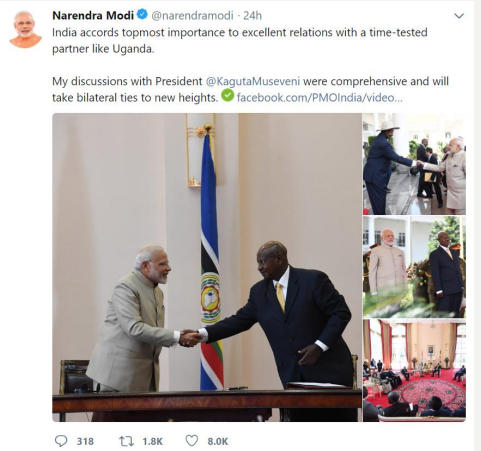Table of Contents
What has happened?
- More than 46,000 people gathered in Paris on Saturday to protest against France’s controversial new security law, which the lower house of the French parliament approved earlier this week.
- The legislation, being pushed by President Macron, seeks to provide greater powers and protections for police officers, and is being opposed by civil liberties groups, journalists and migrant activists.
About the proposed law
- Three articles of the bill, which have caused controversy, concern enabling the police to organise ground and air mass surveillance, while at the same time restricting the filming of police officers.
- Articles 21 and 22 of the proposed “global security” law allow the police and the gendarmes (paramilitary forces) to use body cameras and drones to film citizens.
- Also allow the recorded footage to be livestreamed to the command post.
- Article 24 penalises publishing “the image of the face or any other element of identification” of a police or paramilitary official who is acting in “a police operation”,
- If the dissemination is done with “the intent of harming their physical or mental integrity”.
- Punishment for the crime will be imprisonment for up to 1 year, with a maximum fine of 45,000 euros.
Opponents of the law
- Those opposed to the new law have decried what they describe as the hardening of police response to protests in recent years,
- Especially after the Yellow Vest demonstrations of 2018.
- Journalists and human rights groups have expressed concerns that Article 24 would make it harder to cover public events
- and record instances of police violence, thus making it more difficult to hold officers accountable.
- Its wording has also been criticised as being open-ended, and reporters have worried how the courts would interpret the term “intent of harming”.
- Critics have highlighted two instances of police excesses within the week that grabbed national attention, which they argue would have been left unreported had the proposed law been in place.
- The first occurred on Monday when the French police were clearing a temporary migrant camp in central Paris.
- Video footage showed officers using riot shields to shove people before using tear gas, and some were seen chasing migrants through side streets.
- Paris mayor Anne Hidalgo called the incident “unacceptable” and accused the police of employing a “brutal and disproportionate use of force”.
- Another video, which surfaced on Thursday, showed police officers beating a Black man behind closed doors for several minutes, prompting Macron to say that images from the video “shame us”.
- Civil liberties groups and left-wing parties have called the bill authoritarian and unnecessary, insisting that existing laws are sufficient to protect police officers.
Supporters of the bill
- The Macron government has insisted that it does not intend to target press freedoms, and that,
- The new law is aimed at protecting police officers and their families from online trolling and harassment when off duty.
- Apart from Macron’s centrist La République en Marche (LaRem) party,
- The bill has received support from the country’s conservative parties, allowing it to be easily passed on Tuesday in the National Assembly, France’s lower house of parliament.
- In January, the French Senate–dominated by conservatives– will vote on the bill.
Shift to right
- Notably, analysts have pointed to a rightward shift of the French electorate, especially in the aftermath of a spate of recent terror attacks,
- Including the October beheading of schoolteacher Samuel Paty, and the Nice stabbing
- As per a Bloomberg report, a government-commissioned survey found that 58% of respondents backed the new security law.
- Observers also say that Macron, who describes his politics as “neither right nor left”, and who was with the Socialist Party until 2009,
- Has been increasingly trying to appeal to right-wing voters, especially before the Presidential election of early 2022.
- Another controversial legal measure, the so-called “anti-separatism” bill that Macron is proposing, has been seen as a part of this trend.
- The bill, which aims to crack down on Islamic radicalism, has caused concern among Muslims in France,
- With its measures including school education reforms to ensure Muslim children do not drop out, and stricter controls on mosques and preachers.
Conclusion
- The EU on Monday reminded France that journalists must be able to “work freely and in full security”, warning that it will examine the country’s controversial security bill to ensure it complies with EU laws.
- The UN High Commissioner for Human Rights’ office and France’s own human rights ombudsman have also said the new article risks undermining fundamental rights.

Q) Which of the following statements regarding European Union & India is correct?
- EU is India’s largest trading partner and investor, and accounts for 11% of India’s global trade.
- BTIA is a Free Trade Agreement between India and EU, which was initiated in 2007.
- 1 only
- 2 only
- Both 1 & 2
- None of the above
Latest Burning Issues | Free PDF























 WhatsApp
WhatsApp